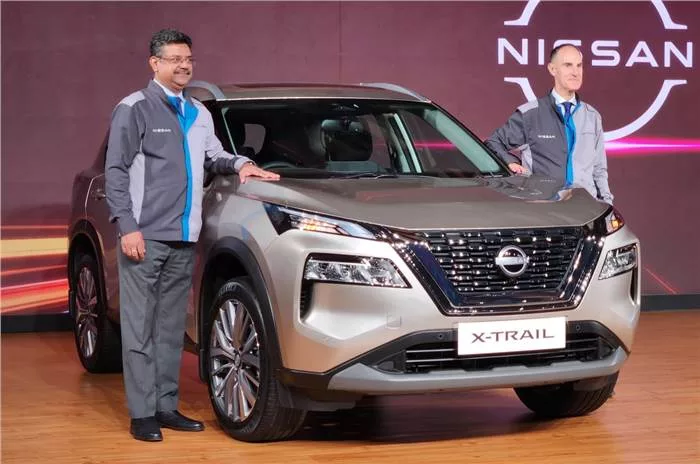Anti-lock braking system or ABS is a vital safety feature that has become a common feature in all modern cars. ABS is often advertised as a system that helps mitigate accidents to a large extent. We explain everything you need to know about ABS, how the system functions, the benefits of the system and the types that you can find in a car you buy today.
Also Read – Safest Cars In India
What is an Anti-Lock Braking System?
As the name suggests, ABS prevents the wheels from locking when you apply the brakes. It lets you control or ‘steer’ the vehicle while the brakes remain applied, and also reduces the braking distance.
What is the need for ABS?
In standard braking (without ABS), when you press the brake pedal, the brake pads press tightly against the wheels’ discs to instantaneously stop the wheels’ rotation, causing them to lock up, regardless of what speed the vehicle is on.
When the wheels stop rotating, they can’t be steered, which means the driver loses all control over the wheels, and now the vehicle skids as a result of the momentum it is in. This can cause fatal accidents more often than not.

What are the main components of ABS?
The main components of the ABS are speed sensors, valves, pump, and ECU.
Speed sensors: These sensors monitor the speed of the wheels.
Valves: Valves in the brake line allow, block and release pressure on the brakes.
Pumps: Pumps are filled with hydraulic fluid that applies pressure to the brake drums or calipers when brakes are applied.
ECU: The electronic control unit (ECU) reacts to the signals from the speed sensors.
How does ABS work?
With ABS, as you apply the brakes, the speed sensors track the decreasing rotation of the wheels. When the brakes are about to stop rotation, they send a signal to the electric control unit (ECU). The ECU partially releases the brake pads from the wheels through valves and pumps, allowing the wheel to continue rotating. With ABS, the wheels can continue rotating, allowing you to maintain control over the car in a heavy braking situation.
Also Read – Types Of Brakes
Without ABS, the wheels would stop or lock up immediately after the brakes are applied and the vehicle would skid due to the translational velocity of the wheels. In this case, due to skidding the vehicle would cover a relatively long distance and you won’t be able to control the vehicle since you can’t steer the locked wheels. Moreover, if the left and right wheels of the vehicle are on different traction surfaces, the application of brakes produces different frictional forces on the wheels. This causes the vehicle to spin uncontrollably.
Advantages of Anti-Lock Braking System or ABS
- An anti-lock braking system reduces the braking distance as the appropriate pressure is applied to stop the car.
- Since wheels don’t lock up while stopping the vehicle, it avoids uneven tyre wear.
- ABS shares some basic infrastructure with the Traction Control System (TCS), which makes it easier to install the traction control system on cars in factories.
- Reduce wearing of brake pads and brake discs.
- In case of heavy braking, you can steer the car around obstacles.
Disadvantages of Anti-Lock Braking System or ABS
- Variable braking distances due to different types of surfaces
- The intricate arrangement of ECU and sensors increases the complexity
- Expensive to maintain
Classification of Anti-Lock Braking System
Depending upon the number of speed sensors and valves, the anti-lock braking system is segregated into three types.
Type of ABS | Details |
Four channel-four sensor ABS | Each wheel has a separate valve and a sensor |
Three channel-four sensor ABS | Separate valves for front wheels. A single valve is for both the rear wheels. |
Three channel- three sensor ABS | A valve and a sensor in each front wheel. A valve and a sensor for rear wheels. |
Anti-Lock Braking System Summary
As ABS prevents the wheels from locking while the brakes are applied, they play a major role in saving the passengers from fatal accidents in case of heavy braking at high speeds. The potency of the anti-lock braking system has been proven all around. Anti-lock braking system has become an essential safety feature that has been made mandatory by the Indian government.
FAQs about ABS
Q. What is the function of EBD with ABS?
In the Anti-Lock Braking system, when the brakes are applied, an electronic control unit doesn’t let the wheels lock and keep them intermittently rotating. During rotation, due to road conditions, different speeds, and loads, all four wheels need a different amount of brakeforce to bring them to rest. The Electronic brakeforce distribution detects the brake force required by each wheel and supplies just as much as needed to keep the vehicle balanced.
Q. What are the mandatory safety features in cars in India?
The mandatory safety features in cars in India are ABS with EBD, rear parking sensors, dual front airbags, rear parking sensors, hill hold control, seatbelt pre-tensioners, and speed sensing door locks.
Q. On what kind of surfaces ABS doesn’t work?
ABS can be ineffective on gravel surfaces, icy conditions, or very wet surfaces. This happens because when the ABS partially releases the barkes from the wheels to let them continue rotating, there isn’t enough friction on such surfaces for the wheels to regain traction.
Q. How effective is ABS in preventing accidents?
ABS reduces the overall crash involvement by 6% in passenger cars and 8% in LTVs (light trucks, pick-up trucks, SUVs, and Vans). During braking, ABS prevents the vehicle from skidding which would certainly happen in heavy braking conditions if ABS is not there.
Q. What is an anti-lock braking system and how does it work?
The anti-lock braking system means the system that prevents the wheels from locking when the brakes are applied in a moving car. With ABS, as you apply the brakes, the speed sensors track the decreasing rotation of the wheels and when rotation is about to stop, they send a signal to the electric control unit (ECU). Then, the ECU partially releases the brake pads from the wheels through valves and pumps, allowing the wheel to continue rotating, Therefore you can maintain control over the car.
Q. What are the benefits of an anti-lock brake system?
The benefits of the anti-lock braking system are as follows
- It reduces the braking distance.
- Since wheels don’t lock up while stopping the vehicle, they don’t skid, avoiding uneven tyre wear.
- ABS assists the traction control system.
- It reduces the wearing of brake pads and brake discs.
- With AMS, you can steer the car around obstacles
Q. What are the 4 major components of an anti-lock braking system?
The four major components of ABS are speed sensors, valves, pump, and electronic control unit (ECU).
Q. What are the 3 types of ABS?
The three types of ABS are:
- Four channel-four sensor ABS
- Three channel- four sensor ABS
- Three channel- three sensor ABS

